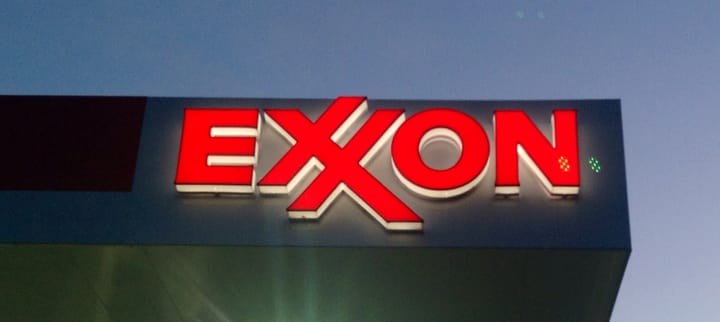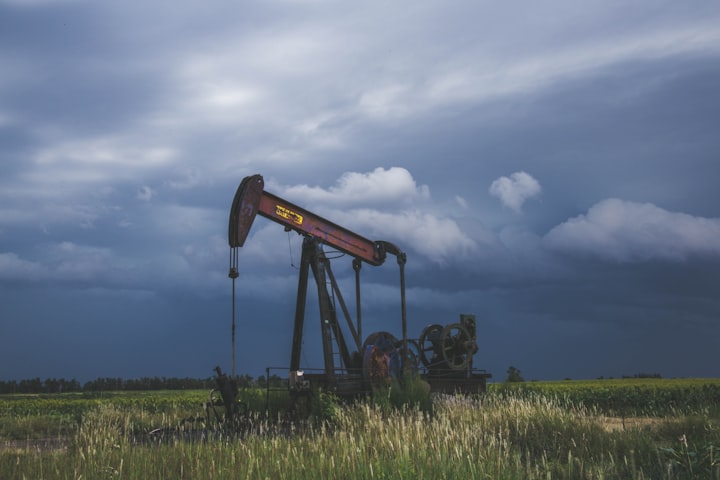The Grifters
“Look around the poker table; if you can’t see the sucker, you’re it.”

There is a lot of talk about assessing climate risks for various businesses these days. One of the main topics is whether investors are getting full disclosures from the management teams of companies in industries like oil and gas. There are well-meaning efforts to make this happen, but as we’ve learned with issues like trying to regulate the oil and gas industry’s methane emissions, all of these efforts rely on one basic incredibly flawed idea: trusting the oil industry to be honest.
If you are wondering about risk in oil and gas investments, I suggest you read the following bit that I wrote in 2020.
Fraud? Or Just a Laughing Matter?
Good reporting is hard work but sometimes involves a bit of luck. Like when a Wall Street Journal reporter, in a room full of people hired to make forecasts of fracked oil and gas production, learned about the existence of much more accurate methods for predicting that oil production. And also learned that with accuracy comes much lower estimates of shale oil reserves.
The WSJ article that followed quoted Texas A&M professor and expert on calculating oil and gas reserves John Lee. “There are a number of practices that are almost inevitably going to lead to overestimates,” said Lee. Those are the practices used by the industry, with Alta Mesa serving as just one example.
Overestimates are why Alta Mesa received funding but now no longer exists.
The Wall Street Journal reported that during a presentation given by Lee, an audience member “stood up and challenged the engineers in attendance,” asking why the forecasters weren’t using accurate models like the ones that were available — as Lee had described.
Another audience member explained the reason.
“Because we own stock,” replied another engineer, “sparking laughter,” according to the Wall Street Journal.
Is it misleading to laugh at your company’s investors if you know the estimates you are giving them are inflated, but because you own the stock that benefits from those estimates, you do it anyway? Is that fraud? Perhaps that depends on if you get you get ethics lessons from Andrew Fastow and Jim Hackett.
Will the biggest innovation of the fracking revolution be making financial fraud a laughing matter?
There is ample evidence that the executives of the oil industry have no problem lying to further their personal financial gain (aka fraud). It seems the engineers in the industry have decided that if you can’t beat ‘em, you should join ‘em. So, if everyone on the inside of the oil companies has the real data but is playing along with the corporate lies “because they own stock” as an investor you should be worried, but also thinking of one important question: When are those people planning to sell? They have the real data. Of course, you almost always learn that information too late, just ask all of the investors in recently failed LNG company Tellurian.
In another article I wrote on oil industry fraud, it included this bit.
According to the lawsuit, a senior production engineer reported that upon hearing that Alta Mesa executives were telling investors the company had 4,200 drilling locations, the team “fell out of our chairs laughing” and were “absolutely flabbergasted” and “astonished.”
Is this just a few bad actors in the oil industry? How about the absolutely absurd info on how much oil the companies tell their investors they have in reserves vs what they tell the SEC.
“One investor analyzed 73 shale drillers in 2014, and found that almost all of them reported higher oil and gas prospects to investors than they did to the SEC,” McLean wrote. “For instance, Chesapeake [Energy Corporation] reported 2.7 billion in ‘barrel of oil equivalent’ —a measure that equates natural gas with oil — to the SEC, but 13.4 billion to investors. Pioneer reported 845 million to the SEC and 11 billion to investors. In total, the industry reported 33 billion of barrels of oil equivalent to the SEC and 163.5 to investors.”
Are you seeing a pattern? One of the major risks to oil and gas industry investors is that the industry is blatantly lying to them about the future of the industry. Should this surprise anyone? They lied about climate science, lied about methane, lied about fracking and water contamination and lie about renewables. The greatest investment risk is obvious: that they will say anything, even things that are absurd, if they think it helps them make more excessive wealth. Here is one more example.
Anyone remember this from two years ago?
That seems like it might have a bit of an impact on global oil demand, right? But, with their expert risk assessment abilities, Exxon has a new forecast about how that will impact oil demand.
“Exxon estimates electric vehicles will not significantly alter long-term global oil demand.”
If you still are the type of person who wants to invest your money and make a positive return, you should be asking yourself a question. Do I want to give these people my money? If that is what they really honestly believe at Exxon, they clearly have very little ability to assess risk or understand some pretty basic concepts (Also, you might want to review the details of Exxon’s ongoing fraud lawsuit). Or you could realize they say whatever they think will make them the most money. However, unlike that one time at the engineering conference, you just can’t hear them laughing at you.
There is an old saying in poker.
“Look around the poker table; if you can’t see the sucker, you’re it.”



Comments ()